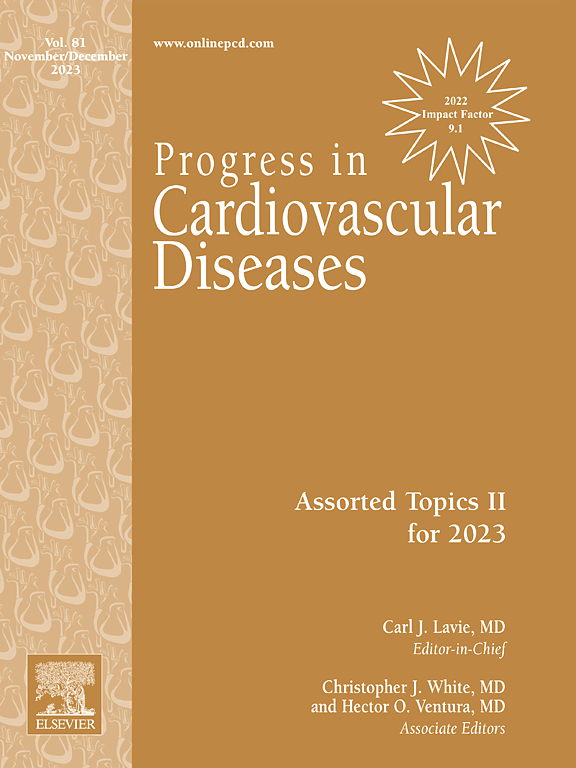Genomics in atrial fibrillation: Predicting recurrence of AF after treatment using genetics
IF 7.6
2区 医学
Q1 CARDIAC & CARDIOVASCULAR SYSTEMS
引用次数: 0
Abstract
With the demonstration that AF is highly hereditable and strongly associated with over 100 genetic loci, one step towards personalized treatment of AF is the potential use of genetic testing to predict response to therapy. Although various clinical models have been developed to predict recurrence, none have shown a consistent ability to predict treatment outcomes. This highlights a need for additional patient information to increase predictive value. Here, we review the use of genetic data for prediction of AF recurrence after interventions such as ablation, cardioversion, or drug therapy. We explore the use of other downstream predictors, such as mRNA and protein, as other possible predictive tools. Finally, we assess how this genetic data can further our mechanistc understanding of AF pathogenesis and recurrence.
房颤基因组学:用遗传学预测房颤治疗后的复发。
由于房颤具有高度遗传性,且与100多个基因位点密切相关,因此房颤个体化治疗的一个步骤是可能使用基因检测来预测治疗反应2-5。临床指标已被开发用于预测房颤干预后的复发,如消融。临床模型,如ALARMEc、APPLE、HATCH和MB-LATER,主要使用临床变量(如COPD、房颤类型和卒中)和心脏参数(如LVEF、BNP和LA参数)来模拟房颤复发。然而,尽管纳入了多种临床变量,没有一个模型具有一致的预测价值。这突出了需要更多的患者信息来提高预测价值。在这里,我们回顾了基因数据用于预测消融、心律转复或药物治疗后房颤复发的应用。中心插图说明:患者遗传学,特别是某些snp的存在或不存在,与房颤消融后房颤复发风险的变化有关。虽然这项研究仍处于起步阶段,但研究也表明,基因也可能影响对心脏复律和抗心律失常药物的反应。
本文章由计算机程序翻译,如有差异,请以英文原文为准。
求助全文
约1分钟内获得全文
求助全文
来源期刊

Progress in cardiovascular diseases
医学-心血管系统
CiteScore
10.90
自引率
6.60%
发文量
98
审稿时长
7 days
期刊介绍:
Progress in Cardiovascular Diseases provides comprehensive coverage of a single topic related to heart and circulatory disorders in each issue. Some issues include special articles, definitive reviews that capture the state of the art in the management of particular clinical problems in cardiology.
 求助内容:
求助内容: 应助结果提醒方式:
应助结果提醒方式:


